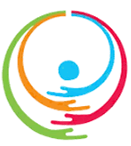For R&D, EVERY DAY must be the International day of people with disabilities!
Since 1992, the 3rd of December is celebrated globally as the International Day of People with Disabilities. Today, R&D would like to ask all colleagues to stop their work for 30 seconds and consider that there are colleagues who are not as lucky as others and have to live with a permanent or temporal disability. Life for those colleagues is simply more difficult and complicated, and putting ourselves in “their shoes” is the only way for all of us to understand what these people are going through, in order to identify problems and come up with solutions.

From inclusion to getting at work…
We must admit that the European Institutions are not a place where a person with disabilities will easily be employed.
The possibility to undergo and pass an EPSO test and competitions is evidently very difficult, and in many cases people with disabilities are not put in the same conditions as other candidates (depending on the disability). Then, even if someone succeeds in the competition, it is often very difficult for a person with disabilities to change country and become an expatriate. Often, even the need to coop with a different health system can be a reason to abandon the idea.
It is definitely true though, that the European Institutions have never set a target with regard to the minimum employment of people with disabilities, contrarily to the public administration of some countries.
For R&D the inclusion of people with disabilities has always been a priority and R&D never spared any effort in order to help towards a better inclusion ( Photo exhibition “Alone with others” – Renouveau & Démocratie ). In the past members of R&D have intervened in order to resolve difficult administrative situations and help the hiring of people with disabilities who were successful in EPSO competitions and in many cases informed the administration about the existence of people with disabilities in lists, or informed of the particular individual situations which would make brilliant laurates eligible in one place of employment as opposed to another.
In addition, R&D has always informed the administration about buildings (including European Schools) with access problems for people on a wheel chair, and has always asked the most pertinent technical questions about safety and security (e.g. about the conditions of emergency evacuations etc.), about accommodation of people with disabilities in buildings etc.
We are calling for greater efforts to be made by European Schools
R&D has also supported the more than worrying results of the report ‘Walk or Die ’: the barriers faced by disabled children in the European Schools system, published by Human Right Watch and the European Disability Forum, asking the Commission to intervene with the utmost vigour in order to redress the unacceptable findings ( link )
And we’re pleased to see that improvements have been made, even if there’s still a lot to do!
These aspects have also been discussed very recently as part of the conferences organised by R&D with the Chairman of the Board of Governors of the European Schools and we are currently following up the questions that have been put to us. ( Renouveau & Démocratie – Antonio Cenini… European Schools – Follow-up! – YouTube ; Renouveau & Démocratie – Antonio Cenini – Looking to the FUTURE of the European Schools System… ).
We are calling for greater support for EC Disabilities Support Group (DSG) and the association of colleagues with Disabilities (ASDEC)
We are grateful for the efforts made by our administration to support colleagues who are parents of children with disabilities, are looking after a dependant with disabilities or are themselves with disabilities.
Nevertheless, more needs to be done to meet the needs of our colleagues also in terms of their own working conditions, so as not to impose unmanageable working arrangements that are so harmful not only to their children but also to their own health.
A European Institution that mirrors our society…
According to official data (https://www.consilium.europa.eu/en/infographics/disability-eu-facts-figures/), in 2023, 27% of the EU population over the age of 16 had some form of disability. The European Commission and the other European Institutions strive to achieve a diversity and inclusion program that aims at having a population inside the Institutions that mirrors the real situation of our society. Definitely, compared to this “27%”, we have to go a very long way. But the issue is not only purely quantitative, or numerical. The European Institutions shall have no building where access for people with disabilities is limited, or problematic, or feasible only for some floors, or where there are toilettes only at the ground floor etc.
R&D invites the European Institutions to review their inclusion plans and to make sure that the most fragile and vulnerable of our colleagues feel at home and that people with disabilities do not feel humiliated when they are in need of something.
The hidden disabilities
R&D wishes to remind our administrations and colleagues that a big part of our colleagues with disabilities are actually suffering by one, or more forms of disability that are not directly evident, but that constitutes equally, a disability. The administration shall have in place a plan for dealing with such cases providing solutions, adequate accommodations, flexible working arrangements and other forms of assistance without at the same time breaching medical secrets, or without revealing sensitive personal data.
R&D is always available for any social dialogues (Disability Policy – Renouveau & Démocratie) and collaboration on this purpose, within the remits of the Joint Committees for Health and Safety at Work, the Committees on equal opportunities, or other forms of social dialogue.
The way the administration accommodates the needs of our most week and fragile populations is in the end the real indication of how human this administration is.
Cristiano SEBASTIANI,
President
